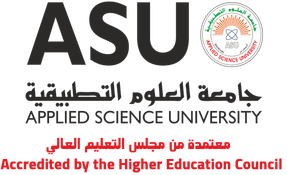ASU participates in the traffic accident seminar in the sultanate of Oman
Representative of the ASU Dr. Ahmed Abdul Sabboor Deljawee, the member of the teaching faculty at the college of law participated in a paper titled “traffic accidents, its reason, and methods of protection.” The seminar was organized by the college of law at Sultan Qaboos University under the patronage of his Excellency the engineer Salem Bin Mohamed Naimi, the undersecretary of the ministry of information.
The seminar aims to focus the light on the traffic accidents phenomenon, especially in the light of the increasing accidents in spite of the  precautionary attempts to decrease this phenomenon. This phenomenon was discussed from the following angles: in order to evaluate the legal side of the traffic laws and the technical side; to evaluate the techniques of the traffic directorate and the legal side in order to explain the position of the Islamic sharia from the traffic accidents, the medical side: to show the consequences of the traffic accidents, and the social and economical side in order to explain the social and the dimensional side of the traffic accidents and the opinion of the society and its role to reduce the accidents. Second in order to reach touchable solutions to be used as bases for an effective cures with regards to the roles concerned and implement it according to the
precautionary attempts to decrease this phenomenon. This phenomenon was discussed from the following angles: in order to evaluate the legal side of the traffic laws and the technical side; to evaluate the techniques of the traffic directorate and the legal side in order to explain the position of the Islamic sharia from the traffic accidents, the medical side: to show the consequences of the traffic accidents, and the social and economical side in order to explain the social and the dimensional side of the traffic accidents and the opinion of the society and its role to reduce the accidents. Second in order to reach touchable solutions to be used as bases for an effective cures with regards to the roles concerned and implement it according to the
advices of the working papers.
Dr. Ahmed explained that the university is always keen to mandate the academic staff to attend the scientific meetings and seminars in order to back and support the scientific research of the academic staff and this reflects positively on the quality of education offered by the university. These seminars and meetings contribute in the research side of the academic staff and help them to be updated with the latest information in the different fields. He added that this activity comes within the framework of the official and popular concern in order to limit the traffic accidents phenomenon and the existing attempts to limit it.
The seminar included sixteen papers that was introduced by researchers from different countries with the participation of official sides and the papers were distributed on four sessions, with an average of two sessions daily.




